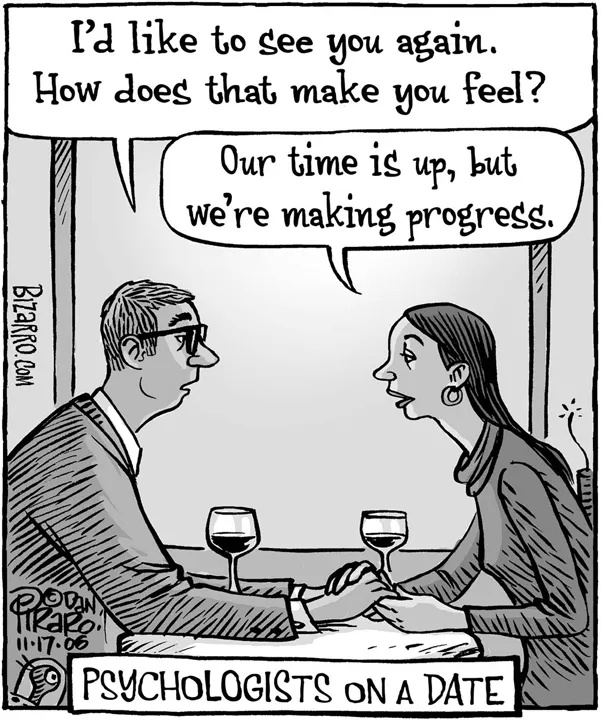
Clinical Psychology
A Modern Health Profession
- 452 pages
- English
- ePUB (mobile friendly)
- Available on iOS & Android
About this book
Clinical Psychology invites students to think like clinical psychologists and develop an integrated sense of how science, experience, ethical behavior, and intuition get woven into our professional identity. Built around typical psychologists and the problems they need to solve, it demonstrates that assessment is much more than testing, and explores how treatment rationales are tailored to the individual problems, histories, and environments of clients. Committed to training future professionals, this text navigates students through the career path of a clinical psychologist and provides guidance on evolving education and training models.
The text uniquely portrays clinical psychology as a modern health care profession that bridges physical and mental health and takes a holistic stance. It treats therapy as a dynamic process that benefits from the cross-fertilization of a range of different approaches. It also provides an international perspective, describing similarities and differences between how clinical psychology is practiced in different countries and contexts. It recognizes that clinical psychology changes as health care systems change, and stresses that training models and practice patterns need to match these changes.
This second edition has been fully revised and reflects DSM-5 and ICD-10-CM guidelines. New and enhanced features include:
- Additional description of the continuing integration of therapy approaches
- Additional evidence on how to make psychotherapy cost-effective
- Upgrades on self-help and web-based treatment
- An expanded chapter on psychopharmacology, offering more information on mechanisms
- Expanded in-text pedagogy, offering more vignettes, ongoing considerations, key terms, and thinking questions
- Powerpoint slides and links to recommended resources.
Frequently asked questions
- Essential is ideal for learners and professionals who enjoy exploring a wide range of subjects. Access the Essential Library with 800,000+ trusted titles and best-sellers across business, personal growth, and the humanities. Includes unlimited reading time and Standard Read Aloud voice.
- Complete: Perfect for advanced learners and researchers needing full, unrestricted access. Unlock 1.4M+ books across hundreds of subjects, including academic and specialized titles. The Complete Plan also includes advanced features like Premium Read Aloud and Research Assistant.
Please note we cannot support devices running on iOS 13 and Android 7 or earlier. Learn more about using the app.
Information
1
Being a Clinical Psychologist
Chapter Objectives
- An appreciation of diverse types of problems that clinical psychologists face, the actual work being done, and the expertise needed to do this work competently.
- An understanding of the training that is involved in developing the identity and skills of a clinical psychologist.
- An appreciation for the blend of science, skill, intuition, and sometimes difficult ethical challenges that shape our professional lives.
Describing the Profession and Its History
- Observation/experimentation, which essentially reflects the activities, such as methodology, that are used to generate theories and test hypotheses;
- Quantification/mathematization, which reflects the use of statistical procedures and mathematics to obtain and test data to determine relationships;
- Theoretical/conceptual analysis, which reflects the clear explication and detailed specification of concepts, constructs, and ideas that derive from or are the focus of research.

Table of contents
- Cover
- Title
- Copyright
- Contents
- Preface
- CHAPTER 1 Being a Clinical Psychologist
- CHAPTER 2 Becoming a Clinical Psychologist
- CHAPTER 3 Methods for Research and Evaluation
- CHAPTER 4 Ethical Decision Making
- CHAPTER 5 The Nature of Psychopathology
- CHAPTER 6 Overview of Assessment
- CHAPTER 7 Psychodiagnostic Assessment
- CHAPTER 8 Cognitive and Neuropsychological Assessment
- CHAPTER 9 Behavioral and Biological Assessment
- CHAPTER 10 The Process of Psychotherapy
- CHAPTER 11 Psychotherapies I
- CHAPTER 12 Psychotherapies II
- CHAPTER 13 Psychotherapy Outcome
- CHAPTER 14 Evidence-Based Therapy: Innovation or Quackery?
- CHAPTER 15 Child Clinical Psychology
- CHAPTER 16 Forensic Psychology
- CHAPTER 17 Health Psychology and Behavioral Medicine
- CHAPTER 18 Psychopharmacology
- CHAPTER 19 Current Trends and the Future of Clinical Psychology
- Author Index
- Subject Index